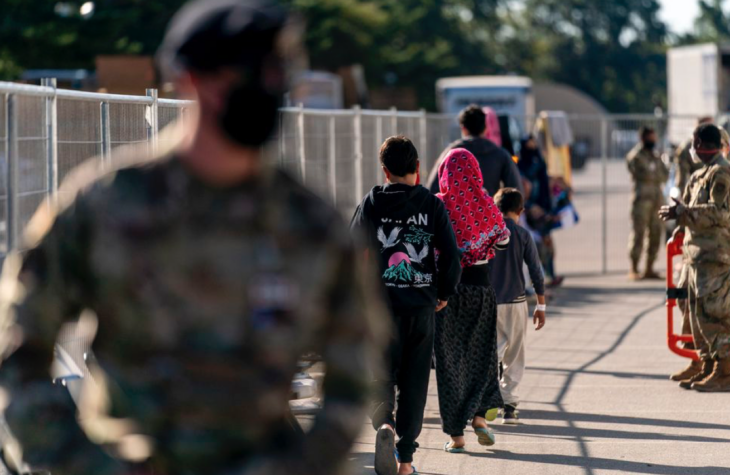
Primer: Parole Authority and Afghan Refugees

Background
The calamitous manner in which the United States retreated from Afghanistan has metastasized into both an emerging hostage crisis for American citizens stranded behind enemy lines as well as an Afghan refugee crisis. Both the Refugee Admissions Program (RAP) and Special Immigrant Visa program (SIV) have hard caps placed on the number of individuals or families eligible for admission into the United States. Nevertheless, the Biden administration appears set on using every tool it can to blow past these limitations, including the expansive use of parole authority.
Given the radicalization of the general Afghan population, importing potentially hundreds of thousands of people who share entirely different values poses a potentially destabilizing threat to U.S. national security and the cohesion of our communities.
What is Parole?
Under the Immigration and Nationality Act (INA), there is a provision that allows the Secretary of Homeland Security (formerly the Attorney General) to temporarily permit noncitizens to enter into the United States who are otherwise inadmissible. This provision is based solely on the secretary’s discretion, providing for the parole of an alien on a temporary, case-by-case basis predicated on what he or she deems urgent humanitarian grounds or significant public benefit.
Congress made its intent regarding parole authority clear in a committee report in 1965 that said such power was to be used only in “emergent, individual, and isolated situations.” Unsurprisingly, it has been used to bring in large groups of refugees over the decades, going beyond congressional original intent. For example, the parole power was used in 1975 to permit entry of nearly 130,000 South Vietnamese nationals following the end of the Vietnam War and almost 7,000 Iraqi nationals following the end of the Gulf War.
A letter spearheaded by Sen. Jeanne Shaheen (D-NH) on August 16, 2021 urged the Biden administration to create a new humanitarian parole category specifically for large numbers of female Afghans. This letter was followed by a memo from Homeland Security Secretary Alejandro Mayorkas on August 23, 2021 to Customs and Border Protection (CBP) to parole an undefined number of Afghan nationals on a case-by-case basis for two years.
Key Elements of Parole
There are a number of key components of the parole power vested in the Department of Homeland Security when it comes to general applicants as well as Afghan refugees.
- The Secretary of Homeland Security has broad discretion to grant parole to individuals on a case-by-case basis and typically delegates such authority to three DHS agencies.
- The United States Citizenship and Immigration Services (USCIS) agency oversees parole requests from individuals seeking to enter the United States for humanitarian reasons.
- Customs and Border Protection (CBP) makes parole determinations at ports of entry while Immigration and Customs Enforcement (ICE) makes parole determinations at court hearings, typically after individuals have been placed in custody.
- Anyone may request parole status, though U.S. citizens may sponsor individuals applying for parole. The duration of the parole period is largely left to the discretion of the agency.
- Those who have been granted parole can also apply for immigration status.
- Reports suggest that Afghans who receive parole status will be eligible for work authorization.
Consequences and Reforms
The most obvious consequence of parole authority being exercised by the Biden administration is the fact that it potentially provides for an uncapped number of Afghan nationals to be brought inside the United States for lengthy periods of time beyond the limitations placed on the RAP and SIV programs.
Given that parole is granted at the discretion of the Secretary of Homeland Security and that there is no statutory definition for what constitutes “urgent humanitarian reason” or “significant public benefit,” the administration essentially has unlimited power to exercise this discretion.
Congressional lawmakers should immediately work to implement the following policies:
- Define “urgent humanitarian reason” and “significant public benefit” in U.S. statute to curb excessive executive discretion and implement strict parameters to prevent abuse.
- Amend the Congressional Review Act to provide Congress with the ability to overturn executive branch parole approval on an individual or even categorical basis with a simple majority vote.
- Institute enhanced vetting protocols as part of the parole approval process that screen for ideological compatibility and ability to successfully assimilate on a temporary basis.
- Further codify that those granted temporary parole status are in no way put on a path to status and must exit the United States upon expiration of the parole date or face criminal penalties and possible jail time.
Conclusion
The catastrophic manner in which the United States withdrew from Afghanistan has resulted in myriad urgent policy challenges both at the domestic and international level. Elected officials must remain clear-eyed and put the security and interests of the American people first. Regional resettlement of Afghan refugees remains the best option for both the Afghans fleeing the Taliban and American citizens whom elected officials swore an oath to protect.
Furthermore, lawmakers must begin curbing the parole powers of the Secretary of Homeland Security to ensure greater oversight regarding who is allowed inside the United States while providing specific statutory language to clarify what constitutes “urgent humanitarian reason” and “significant public benefit.” Failure to legislate reasonable parameters and institute strong vetting protocols is guaranteed to bring about abuse of the process, which could lead to significant harm for American citizens.



